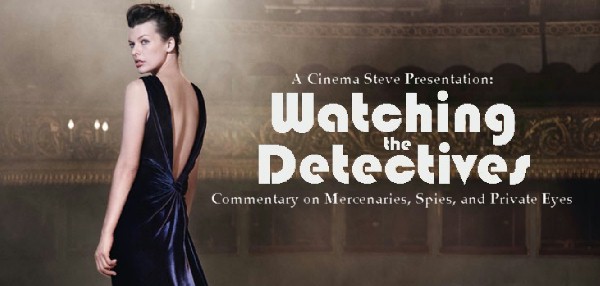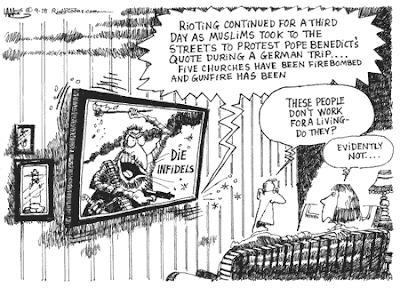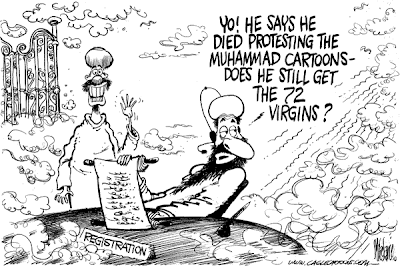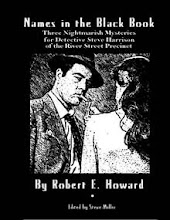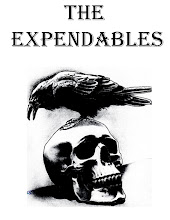The Terror of the Tongs (aka "Terror of the Hatchet Men") (1961)
Starring: Geoffrey Toone, Christopher Lee, Roger Delgado, and Yvonne Monlaur
Director: Anthony Bushell
Rating: Six of Ten Stars
After his daughter is killed by vicious members of Hong Kong's Red Dragon Tong, Captain Sale (Toone) goes on a rampage intent on destroying his daughter's killer and entirety of the secretive crime syndicate.

"The Terror of the Tong" is a well-made example of an adventure fiction sub-genre that has fallen completely out of favor due to changing climates in geo-politics and cultural attitudes in the West: Yellow Peril Tales. In these stories, mysterious Asian crime figures held entire populations in their power through fear and supposedly mystical abilities... until some two-fisted, stiff-necked Anglo-American hero came along and put a stop to his nefarious ways. The genre was dying its last gasp when I was a kid--relegated mostly to awful Kung Fu movies and comic books where Nick Fury battled the Yellow Claw, Iron Man squared off against The Mandarin, and Shang Chi fought a dogged battle to bring down the criminal empire of his father, Fu Manchu, the most famous and respectable of all Yellow Peril villains.
The Yellow Peril tales grew out of the same impulses that gave birth to the gothic fiction genre--a British discomfort and perhaps even fear of outsiders and their alien culture, and was further fueled by straight-forward racism among Americans--although, frankly, aside from the WW2 years, many Yellow Peril tales actually put Westerners in as bad a light as their Oriental foes. This is especially true of the Fu Manchu tales.
That, however, is not the case with "The Terror of the Tongs". The Chinese gangsters in this picture are vicious psychopaths through-and-through, with no motivations beyond feeding their own sadism and hunger for loot and power. Although evil, Fu Manchu at least believed he was fighting the good fight to restore his people's honor and save them from the corrupting influences of the West.
A curious artifact of film industry standards long gone is the fact that most of the Asian characters in the film are played by Caucasian actors in heavy make-up. It was a long-standing tradition to have whites play these roles in Yellow Peril movies, something which seems a bit odd to many viewers today, and which has been mocked in more recent times with Peter Sellars and Nicolas Cage both taking comedic turns as Fu Manchu.
In this film, Christopher Lee plays Chung King, the head of the Red Dragon Tong. He does a great job sitting around looking sinister and spouting weird sayings and sending out opium- and sex-crazed killers to slay his enemies and terrorize city neighborhoods. Roger Delgado is similarly excellent as a Eurasian who serves as Lee's top lieutenant. Wisely, the director has neither of these actors put on fake accents, instead allowing them to speak the Queen's English perfectly and thus taking advantage of the full capacity of both actors to bombastically sinister.
Meanwhile, on the good side of the equation, we have are treated to some fine performances by Geoffrey Toone, the bullish sea captain who prove that the British stiff upper-lip can be backed up with a strong right hook, and Yvonne Monlaur, another Eurasian character for whom the brave captain opens horizons free from the servitude to the Tong her mixed blood had forced upon her.
None of these characters are exactly complex, but the actors give each of them their all and infuse them with the larger-than-life quality that this sort of story needs to work.
Director Anthony Bushell also tries his best to bring that sense of grandness to the film's sound-stage bound environment, with the Hong Kong docks and neighborhoods being represented by re-dressed standing sets left over from other Hammer productions. While he mostly fails at this, he does manage to draw some very sharp lines between the villains and heroes, and he also manages to work in some of the horror qualities that we've come to know and love from movies like "Curse of Frankenstein".
Unfortunately, that horror was blunted, and remains so to this very day; the DVD edition appears to have been made from a print of the film that has been butchered by censors. There are numerous time when fight scenes or other scenes of violence have been sloppily edited, to the point where even the music soundtrack seems to jerk. The worst example of this is the scene where Tong thugs invade the bedroom of Captain Sales' daughter; there seem to be at least two instances where the scene was too intense for censors, and their cuts have left the scene disjointed and a little confused. (The implication is that the Tong cut off three of the girl's fingers, as is their habit, but as it plays out, she is struggling one moment and completely unconscious a split-second later, with no apparent cause. And yet somehow her ring is dropped on the floor and stained with blood...)
Still, this is a fairly minor blemish, and it's more than made up for with the climax where the down-trodden citizens rise up against the Tong. And, as mentioned, Christopher Lee is quite good in the film. He would later go onto play the grandest of Oriental villains--Fu Manchu--but he is actually better here than he was in the Fu Manchu movies I've seen. (Of course, I've only seen a couple craptacular Harry Towers/Jess Franco ones, so maybe I'm not judging him fairly.)
For more examples of the Yellow Peril genre,
click here to read film reviews at Shades of Grey.
